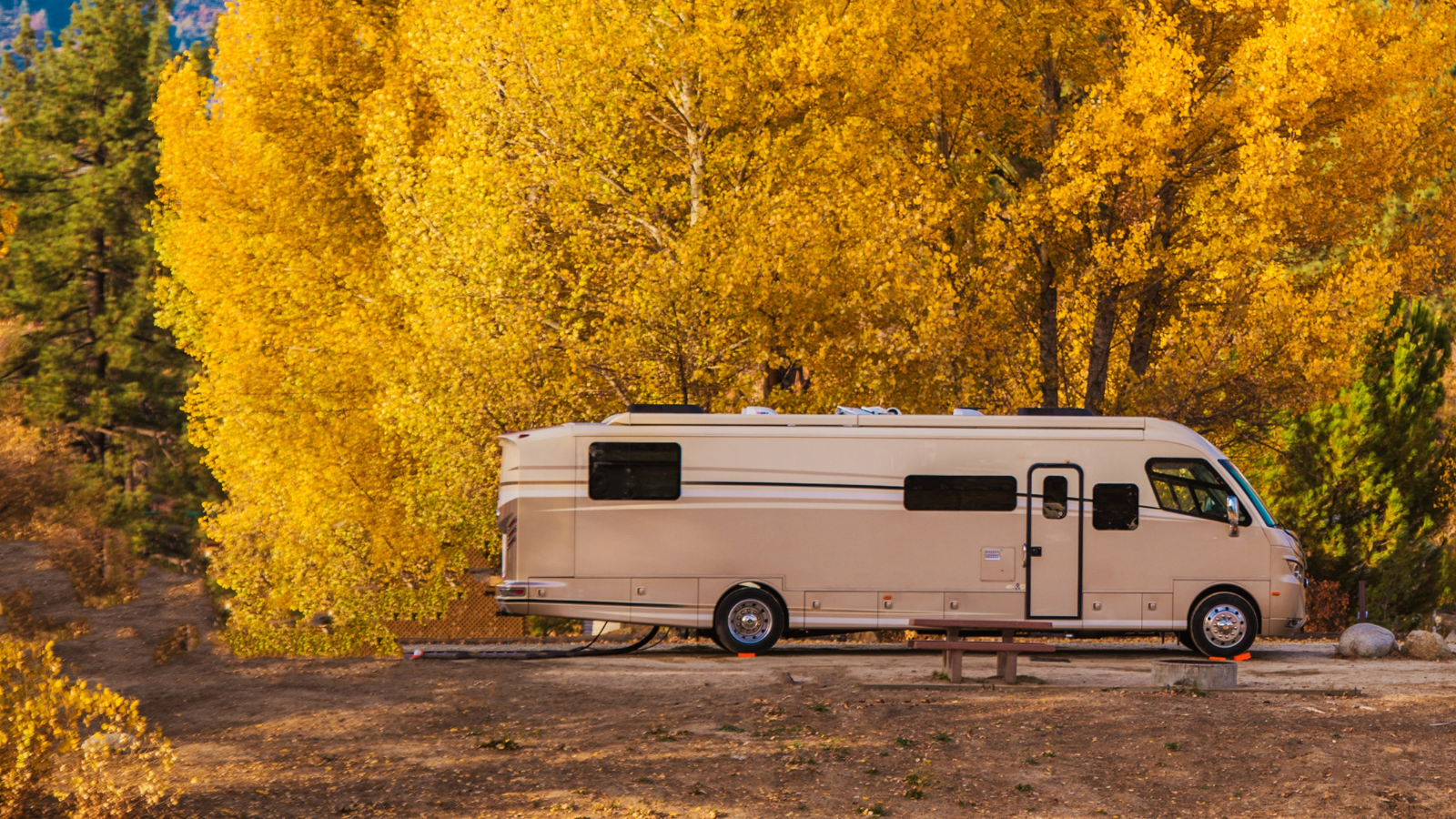The high season is over. Fall colors have turned from bright to dull, and the mornings have grown frosty. More and more RVers are choosing to continue camping at this turning point of the year, and beyond.
And that takes preparation. Before you head out on a late fall or winter camping trip, keep these safety tips in mind.
Stay connected. Charge everything that needs to be charged prior to embarking on your expedition. Cell phones in particular since they are used not just for communication, but for navigation as well. Remember your phone’s power cord and bring along a portable battery as well in case you don’t have access to – or lose access to – electricity. Carry a road atlas, one that is specific for RVers is best, so that you can rely on something other than your phone for navigation. The same thing should be done if you’re on the trail; carry a physical map with you if you intend to hike a lengthy distance or on a trail that is unfamiliar to you. As always, leave a note behind in the RV or let someone know where you’ve gone and when you intend to return. Speaking of staying connected, if you plan to use a water hookup, consider investing in a heated hose to connect your RV to your water source.
Reduce driving time. When the seasons turn cold, fog, ice, and snow are common visitors. These can be hazardous if not taken seriously and if you don’t take extra care while driving. Driving against these elements can also be quite tiring. It’s not just an easy shot from one destination to the next; the roadway may be slick or the visibility low as you make your drive. Plan your driving times to take place during the day, try to travel only when the weather is at its best (as it can be), and don’t plan to drive as far as you would have during the warm summer months. Plan your stops closer together so that your eyes, mind, and hands all get a break. Don’t try to push through or take on more than you can handle.
Anticipate the elements. We plan our wardrobes around summer weather. Now that it’s late in the year, it’s important to pack warm clothing and clothing that can layer. Since these items tend to be bulkier, bring fewer pieces or vacuum seal them to reduce how much space they take up. Travel with flannel sheets, down or down alternative comforters that offer breathability, and extra blankets in case of an emergency. Make your travel plans based on the weather forecast as well as for any outdoor activities, and dress in anticipation of the weather. Have a coat, gloves, thick socks, and boots as part of your ensemble. Extra hats and gloves are a good idea, in case the first set gets lost or wet.
Pack enough provisions. Travel with several canned goods and jugs of water, and keep some in the toad or tow vehicle in addition to the RV so that you can access food and water from any vehicle. Carry a roadside kit that includes reflective cones and road flares. If you plan to travel in snowy conditions, bring along a shovel as well as part of your preparedness. Make sure propane tanks are full, that you have extra batteries packed, and
Keep the heat – safely. If you plan to use propane to heat your RV, it’ll only last a short time if the outside temperature is cold. Make sure there is a propane refill station nearby and open, or bring extra tanks with you. If you plan to use a furnace, test it before you leave home. Clean the furnace area to get rid of dust and debris. During the day, you can choose to run portable electric space heaters to stay warm; however, crack a window or vent for ventilation – and make sure you have smoke detectors and carbon monoxide detectors that are up to date and have new batteries. You can further fortify your RV against the cold – and save on electricity and propane as well as to help prevent problems with your RV’s plumbing – by adding skirting around the bottom of the RV; making sure the seals around windows, doors, and vents are tight; and using thick curtains or foil insulation on the windows or to separate sections of the RV.
When it comes to cold-weather camping, being prepared is the most important thing you can do. Now, get out and enjoy beautiful Michigan during these quieter, grayer months.

